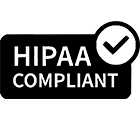Schizophrenia and schizoaffective disorder share some symptoms, but they are distinct conditions. So, what differentiates schizophrenia vs. schizoaffective disorder? In this article, we’ll discuss the differences between them, how each is treated, and how QuickMD’s telemedicine services may help you.
What is schizophrenia?
Contrary to popular belief, schizophrenia is not a multiple personality disorder. The “split” in schizophrenia refers to a split from reality.
Schizophrenic patients frequently experience hallucinations and illogical beliefs. Paranoia may play a part, such as a student feeling that a professor is personally referring to them in lectures. Delusions of grandeur are another symptom, like insisting they are a famous rock star incognito.
Common symptoms of schizophrenia:
- Hallucinations: Hearing voices is the most common type of hallucination, often starting as harmless but progressing to dangerous commands. Seeing things that aren’t there is also common.
- Disorganized thinking: Difficulty speaking or answering questions meaningfully, often resulting in disorganized speech with puns, rhymes, or free association.
- Disorganized behavior: Bizarre acts like holding unusual postures or inappropriate actions in public.
- Negative symptoms: Inability to find pleasure in activities (anhedonia), lack of facial expression (flat affect), or inability to perform daily activities competently.
What is schizoaffective disorder?
Schizoaffective disorder is a combination of schizophrenia and an affective (mood) disorder involving emotions such as depression or mania. Patients may exhibit symptoms of bizarre behavior alongside episodes of depression or abnormal happiness and energy.
Common symptoms of schizoaffective disorder:
- Psychotic symptoms: Similar to those of schizophrenia, such as hallucinations and delusions.
- Mood symptoms: Episodes of depression or manic behavior characterized by extreme happiness, energy, or irritability.
How are schizophrenia and schizoaffective disorder treated?
Here are common ways to treat schizophrenia vs. schizoaffective disorder.
Schizophrenia Treatments
Antipsychotic drugs are prescribed for schizophrenia. Common medications include:
- Abilify (aripiprazole)
- Saphris (asenapine)
- Rexulti (brexpiprazole)
- Vraylar (cariprazine)
- Clozaril (clozapine)
- Fanapt (iloperidone)
- Latuda (lurasidone)
- Zyprexa (olanzapine)
- Invega (paliperidone)
- Seroquel (quetiapine)
- Risperdal (risperidone)
- Geodon (ziprasidone)
Schizoaffective Disorder Treatments
Several types of medication are prescribed for schizoaffective disorder:
- Antipsychotic drugs: Invega (paliperidone) is FDA-approved for treating schizoaffective disorder and works by blocking serotonin and dopamine
- Other medications: Antidepressants and mood stabilizers as needed
- Therapies: Psychotherapy, life skills training, and electroconvulsive therapy
Can psychiatric medication be prescribed online?
Yes, QuickMD can help you manage schizophrenia or schizoaffective disorder remotely. To receive counseling and get a refill of your psychiatric medications, talk with a QuickMD provider.
Get professional advice with QuickMD
For personalized medical advice and treatment for schizophrenia or schizoaffective disorder, QuickMD’s telemedicine urgent care services are here to help. Consult with a QuickMD provider today to manage your condition effectively.
Manage your mental health with ease. Visit QuickMD to schedule your telemedicine appointment and get expert guidance on managing schizophrenia or schizoaffective disorder.
















